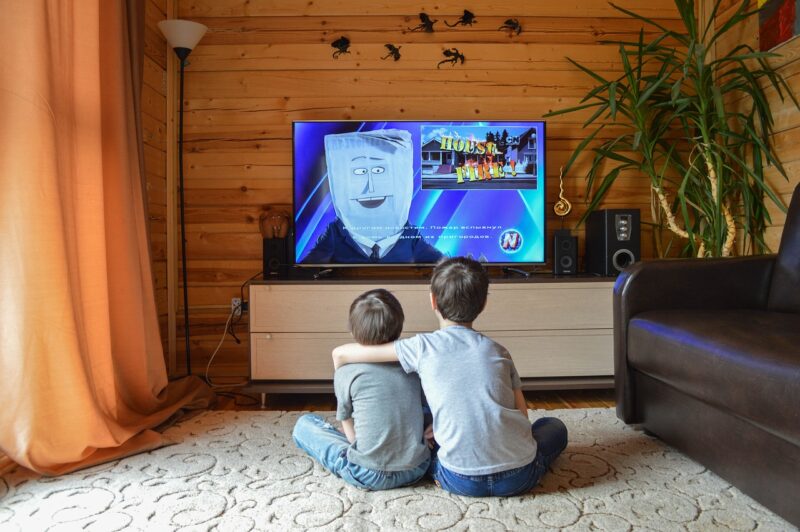
Television has always played a significant role in shaping childhood experiences. From jolly characters to engaging storylines, kids’ shows have the power to influence values, spark imaginations, and create cherished memories. This article takes a nostalgic ride through some of the most impactful kids’ shows that left an indelible mark on an entire generation.
1. The Magic of “Sesame Street”
“Sesame Street” debuted in 1969 and has become a cultural phenomenon. With its vibrant mix of puppetry, animation, and live-action segments, “Sesame Street” revolutionized children’s television. It taught essential academic skills while addressing social issues such as diversity, acceptance, and kindness. Characters like Big Bird, Elmo, and Cookie Monster became household names and part of children’s everyday vocabulary.
The show’s unique format, which blends education and entertainment, played a critical role in early childhood education. Research has shown that “Sesame Street” significantly improved vocabulary skills in preschoolers. This trailblazing program paved the way for future educational shows, proving that learning could be fun and engaging.
2. “Mister Rogers’ Neighborhood” and Emotional Intelligence
Fred Rogers’ gentle presence and thoughtful discussions about feelings made “Mister Rogers’ Neighborhood” a beloved classic. Premiered in 1968, the show focused on emotional intelligence, encouraging children to express their feelings and understand the feelings of others.
The carefully curated segments, which introduced children to various occupations and cultures, empowered them to explore the world with empathy and understanding. Rogers’ consistent message about self-worth and acceptance resonated deeply and continues to inspire new generations even long after its final episode in 2001.
3. “Scooby-Doo, Where Are You!”: A Blend of Mystery and Friendship
Debuting in 1969, “Scooby-Doo, Where Are You!” captivated kids with its unique blend of comedy, mystery, and a lovable Great Dane. The show followed four friends and their dog as they solved mysteries involving supposedly supernatural creatures, teaching kids the value of critical thinking and teamwork.
The fractured narrative and light-hearted humor masked essential themes such as facing fears, questioning assumptions, and trusting friends. Scooby and the gang remain enduring figures in pop culture, leading to numerous spin-offs, films, and merchandise that influence children’s media today.
4. “The Magic School Bus”: A Fun Ride Through Science
“The Magic School Bus” aired from 1994 to 1997, taking kids on educational trips in a magical bus that could shrink, dive, and even fly. The show, hosted by the enthusiastic Ms. Frizzle, introduced children to various scientific concepts in a fun and adventurous manner.
Episodes covered a wide range of topics, from the human body to ecosystems, inspiring a love for science and curiosity about the world. By engaging children through vivid storytelling and fascinating facts, “The Magic School Bus” left an enduring legacy in educating kids about science.
5. “Dora the Explorer”: Empowering Young Explorers
Debuting in 2000, “Dora the Explorer” became a groundbreaking show by introducing a Latina character who embarked on adventures with her talking monkey friend Boots. The interactive format encouraged children to participate actively in problem-solving and language acquisition. Through simple Spanish phrases and lessons woven into storytelling, children embraced diversity and bilingualism in a fun way.
Dora’s adventurous spirit and tenacity set a precedent for strong female characters in children’s media, encouraging empowerment and curiosity in young viewers.
6. “Arthur”: Tackling Real-life Issues with Humor
“Arthur” premiered in 1996, featuring an aardvark and his friends as they navigate the complexities of growing up. The show tackled real-life issues such as friendship, family dynamics, and the challenges of being a child in modern society, all while maintaining a lighthearted, humorous tone.
“Arthur” allowed children to see themselves in various stories, fostering understanding and acceptance of life’s ups and downs. The relatable characters and engaging narratives equipped children with social skills needed to face life’s challenges, shaping their values and outlook on friendships.
7. “Pokémon”: More Than Just a Game
Originating in Japan, “Pokémon” burst onto US television screens in the late 1990s and changed the animation landscape. Following Ash Ketchum and his adventures to become a Pokémon master, the series introduced themes of friendship, teamwork, and perseverance.
Not only did it create waves through television; it transformed into a broader franchise including video games, trading cards, and merchandise. It created a subculture among kids, connecting them through shared experiences, fostering social interactions, and tying them together with a sense of community.
Conclusion: The Impact of Kids’ Shows
The television shows from our childhood hold a special place in our hearts, evoking laughter, nostalgia, and invaluable lessons learned. These pioneering shows changed the landscape of children’s television by blending entertainment and education, instilling social values, nurturing creativity, and shaping perceptions.
In an era of changing media consumption, the core values embedded in these beloved programs continue to resonate with both children and adults alike, reminding us of the power of storytelling in shaping lives and communities. As we reflect on these timeless classics, we can appreciate their enduring influence on generations to come.
As we continue to navigate through various media, it’s worth remembering the joy and insight these shows provided as they fostered a sense of belonging, a thirst for knowledge, and the values that remain with us as we grow.






